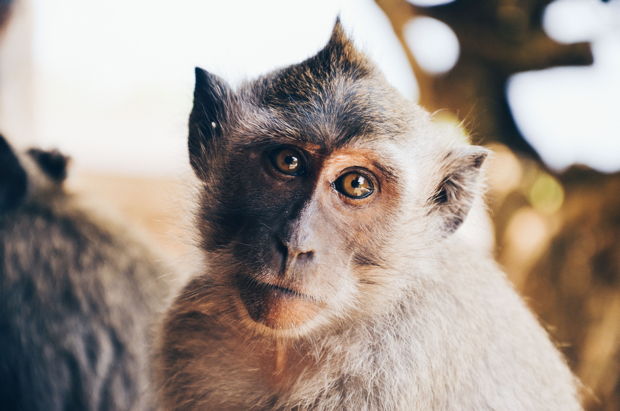
Sometimes I hear monkeys scampering across our Nairobi roof at night.
The scuffling, scraping sounds always come suddenly and startle me. Especially if the power is out and I’m standing in the middle of my darkened kitchen, the countertops and cabinets illuminated only by a small solar-powered light.
I wish I knew how to ward off the monkeys, or at least politely ask them to give notice before they start frolicking above me. More importantly, I wish I could make the power supply more consistent.
When I lived in the US, I could do things like that. I could flip any switch in our California home, and the lights would always turn on. I could summon hot, clean, drinkable water from our faucets whenever I needed it. If I had a craving for my favorite snack, I could get exactly what I wanted with a quick trip to the grocery store.
And there were certainly no wild creatures playing on our roof.
In the US, I was powerful enough to keep my life contained and controlled. My day-to-day existence unfolded the way it did because of my decisions and actions. If things went smoothly, it was because I had organized everything well. If things didn’t go as expected, well, it was usually because others didn’t do what they were supposed to.
As ridiculous as that sounds, that’s what I believed deep down. I never would have admitted such, of course. I would have told you that I was well aware how limited my own control was, how transient life was, how important it was to trust a sovereign God when I was such a tiny speck in the universe.
But that’s not how I lived.
And then I moved overseas to Kenya, a gorgeous country full of wonderful people, whose infrastructure is still a work in progress. Life in Nairobi, one of the largest and most developed cities in East Africa, can actually be quite comfortable. But what it’s not is consistent.
The power goes out at least a few times a week, sometimes as often as a few times a day. We have hot water, but only a limited daily supply — and it’s certainly not drinkable. Our daily plans are regularly interrupted by large-scale protests, unannounced road closures, sudden building demolitions, fuel shortages, severe traffic, and even the occasional stray lion from the nearby National Park.
I spend far too much of my time looking for imported food items like Cheerios, Goldfish crackers, and organic baby food, which come and go like ephemeral apparitions. My children’s diet is at the mercy of an inconsistent supply chain, which in turn is at the mercy of corrupt customs officials and sudden tariffs or policy changes.
I live a life of immense privilege in Nairobi, and yet I have also never been so aware of my relative powerlessness. All the things I can’t control are staring me in the face from the moment I wake up, challenging my sense of who I am and how much credit I can really take for the goings-on in my life.
What I thought of as my own competence, my own ability to keep my life smooth and organized, was in fact the result of structures and processes that happen to run well. I had conflated my abilities as a responsible adult with the privilege of living in a part of the world with excellent infrastructure and rule of law.
When my existence flows smoothly, it is because countless people have established foundational processes and procedures over decades and centuries, and countless others are contributing their labor and skills to keep those running. I am deeply dependent on everything and everyone around me.
I am also deeply dependent on the immeasurable grace of a merciful God. I am, in fact, no more than a tiny speck in this universe.
Most Americans get stark reminders of this reality only when something goes horribly wrong: when the water suddenly becomes poisonous; when emergency services fail during an acute natural disaster.
But people living in much of the rest of the world are reminded every day of what they can and cannot control. And while this does not make for an easy life, it certainly seems to form a more resilient life.
When I am among Kenyans, I am humbled by their flexibility and their sense of humor. I appreciate their resourcefulness and ability to let things go.
When uncertainty and unpredictability are the norm, you figure out ways to adapt and cope because you have to.
In contrast, I see how a comfortable, smooth, and well-run American life has cultivated pettiness and impatience in me. I don’t know how to be grateful for the many conveniences in my life. I tend to expend too much energy trying to control things I can’t control or caring about things that don’t really matter.
Perhaps most importantly, the areas in my life in which I think I don’t need God far outnumber the areas I fully entrust to God.
But, here in Nairobi, when the power goes off and the monkeys make me jump, I recognize that self-reliance can only get me so far. I am grateful for the many individuals who provide advice and assistance to our family when we’re in a quandary. I appreciate, on a far deeper level, the Lord’s many daily mercies.
In fact, just today, I found Cheerios in a grocery store after a month of fruitless searching. It felt like nothing short of an act of God — and it very well may have been.